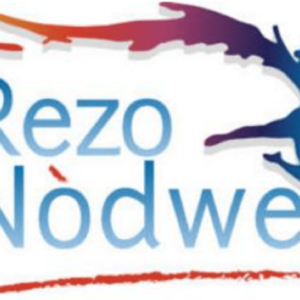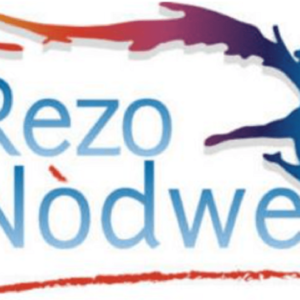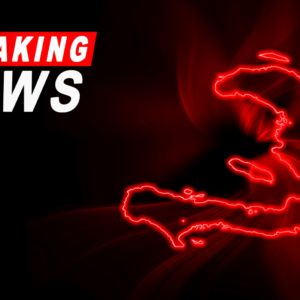P-to-P, June 26, 2024 [AlterPresse] — The Organization of Citizens for a New Haiti (Ocnh) protests against the ineffectiveness of the fight against illicit drug trafficking in Haiti, in a report covering the period from 2014 to 2023 and transmitted at AlterPresse, the day before the International Day (June 26 each year) against drug abuse and trafficking.
For many years, over the period from 2014 to 2023, covered in the report, this fight has proven ineffective, due to the proliferation of armed gangs which occupy nearly 80% of the territory of the capital, Port-au- Prince, and which block major roads, analyzes Ocnh.
This inefficiency is also explained by chronic political and economic instability, she adds.
Ocnh reveals how disadvantaged areas, such as Village de Dieu and Great Ravine (Port-au-Prince), Savien, Savanna Djann et Little Brave (Artibonite department), become drug storage camps.
Control of armed gang leaders over drug trafficking in Haiti
“Foreign traffickers deal not only with traditional national traffickers, but they have direct access to gang leaders without sometimes even going through traditional interlocutors.”
Unlike previous years, the landing of drugs is now taking place in areas occupied by armed gangs, which are reinforced by drug assets, denounces the report, citing the Village de Dieu district which has become a hub of drugs, a real drug landing place.
The Ocnh reports an absence of an anti-drug policy and a systematic surveillance system, at seaports and other landing points, to prevent the entry of drugs into the territory of Haiti.
Follow the AlterPresse/AlterRadio channel on WhatsApp – CLICK HERE
Significant reduction in drug seizures
“For several years, drug seizures have been insignificant. There is no sharing of information in this area, as was the case around 2014,” notes Ocnh.
She highlights a recent decrease in drug seizures, which reflects the inefficiency of the police services.
“Preventive measures do not produce sufficient effects to stop this scourge (of drugs), which continues to plague society.”
Institutional weaknesses, lack of transparency in anti-drug operations…
The Ocnh equates the low number of drug seizures with the weaknesses of the institutions, which contribute to the fight against this scourge.
The various amounts seized are not the subject of any report from the Commission for the Fight against Drugs (Conald), the state body responsible for coordinating and implementing the national policy to combat drug use and trafficking. illicit drugs.
In addition, “the operation of the Anti-Drug Trafficking Brigade (Blts) is carried out in the greatest opacity. The operations are not supervised and the drugs seized are never the subject of a transparency report.”
The Ocnh points to institutions dedicated mainly to the fight against drugs, notably Conald and Blts, which rarely produce reports relating to drugs.
Impunity for drug traffickers
“The majority of drug-related cases do not even reach the sentencing phase. When they get there, they are often tainted with deficiencies, because of the protection of certain powerful defendants,” criticizes the Ocnh, in its report covering the period from 2014 to 2023 in Haiti.
Drug cases are rarely handled and prioritized by criminal justice in six (06) jurisdictions of the country’s first instance courts, such as Saint-Marc (Artibonite department), Cayes and Aquin (South), Port-au- Prince and Croix-des-Bouquets (West department), according to data collected by the Organization of Citizens for a New Haiti.
Most magistrates are not specialized in the fight against drugs, nor do they master (not even) the latest law relating to it.
In addition, they rarely prosecute people involved in trafficking and other drug cases over the last ten (10) years, according to a survey conducted by Ocnh among magistrates in the criminal justice system in Haiti.
The Ocnh report aims to assess the response given by the Haitian justice system to expectations, in the context of the fight against drugs, and to analyze the attitude of the judicial authorities, in terms of processing cases linked to the fight against drugs and against the laundering of related assets.
Although not exhaustive, this Ocnh document would provide sufficient relevant information to better understand judicial governance in the area of drug repression over the last ten (10) years.
Ocnh recommendations for an effective fight against drug trafficking and the laundering of related assets
For the handling of drug court cases, the Ocnh recommends supporting the specialization of judges, setting up a national anti-corruption prosecutor’s office and creating a database on drugs, accessible to human rights organizations. , to legal actors, and to researchers.
She advocates a culture of transparency in drug seizures, while calling for strengthening the institutional and operational capacities of the judicial system in Haiti.
It asks to promote the effectiveness of investigations and legal proceedings linked to drug cases and the laundering of related assets, to establish a monthly report on the actions of the Blts and the CONALD.
It is also necessary to adopt a text of law, which would make it possible to invest the funds, seized by the Conald, in the modernization of criminal justice, to create an inter-jurisdictional task force on the question of drugs and other related offenses with actresses and actors who have received appropriate training. [emb rc apr 26/06/2024 15:00]









